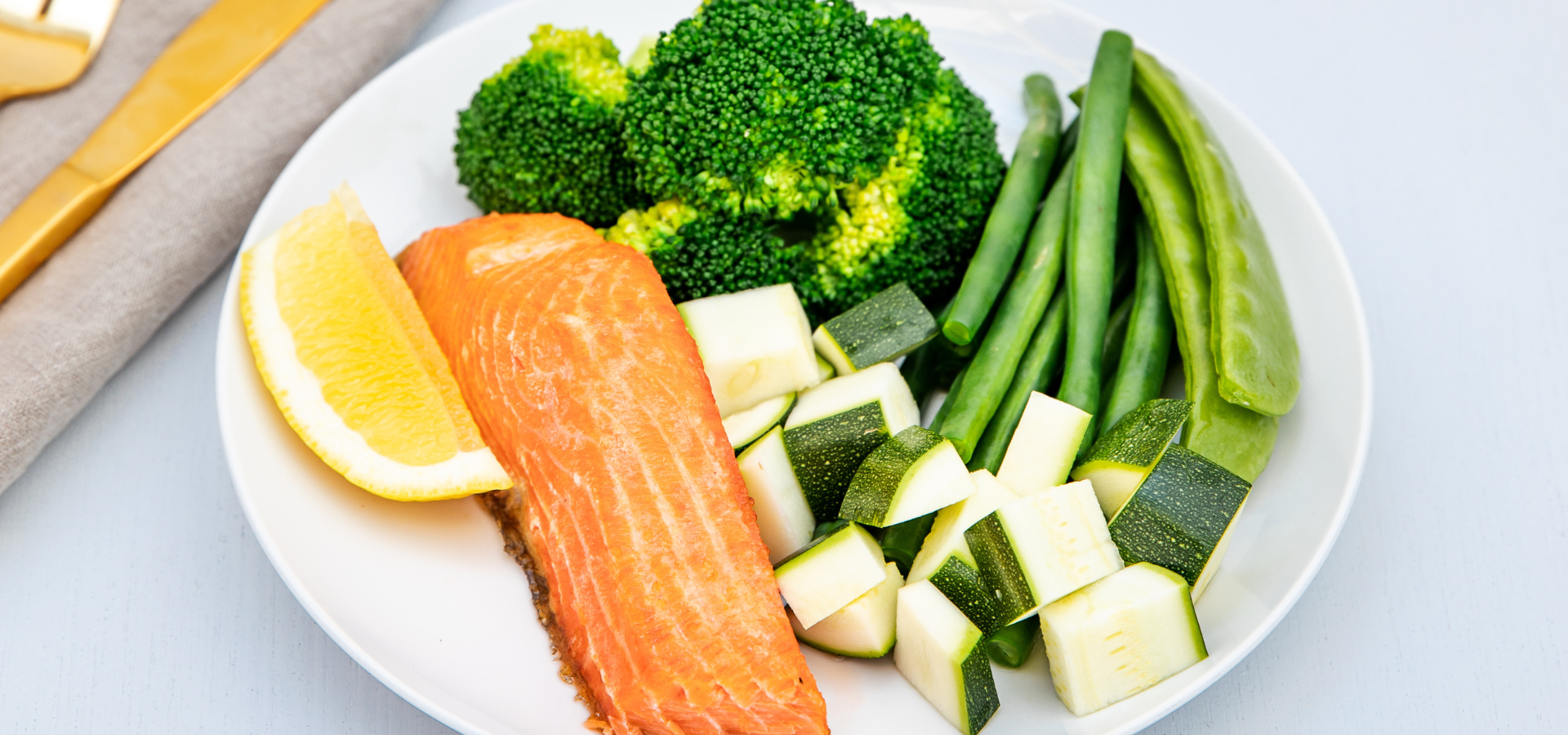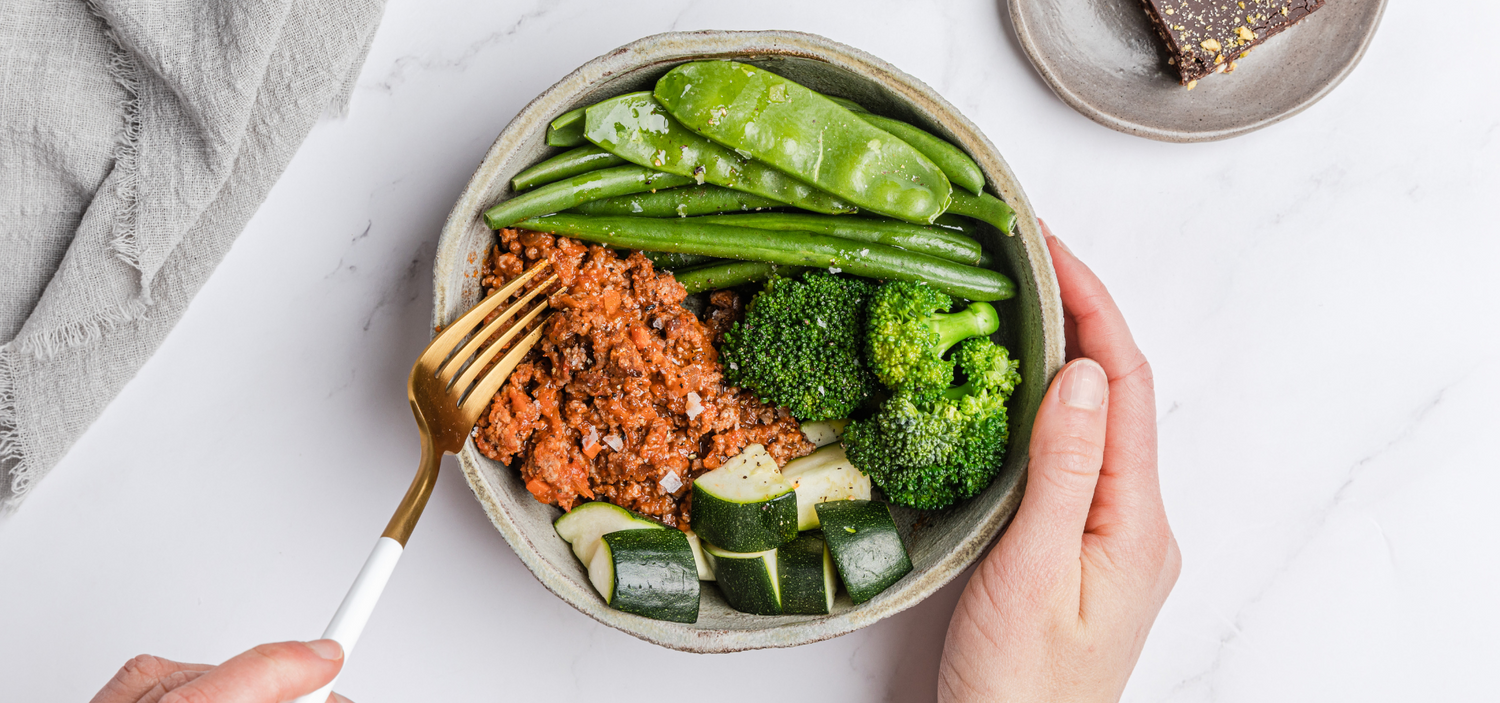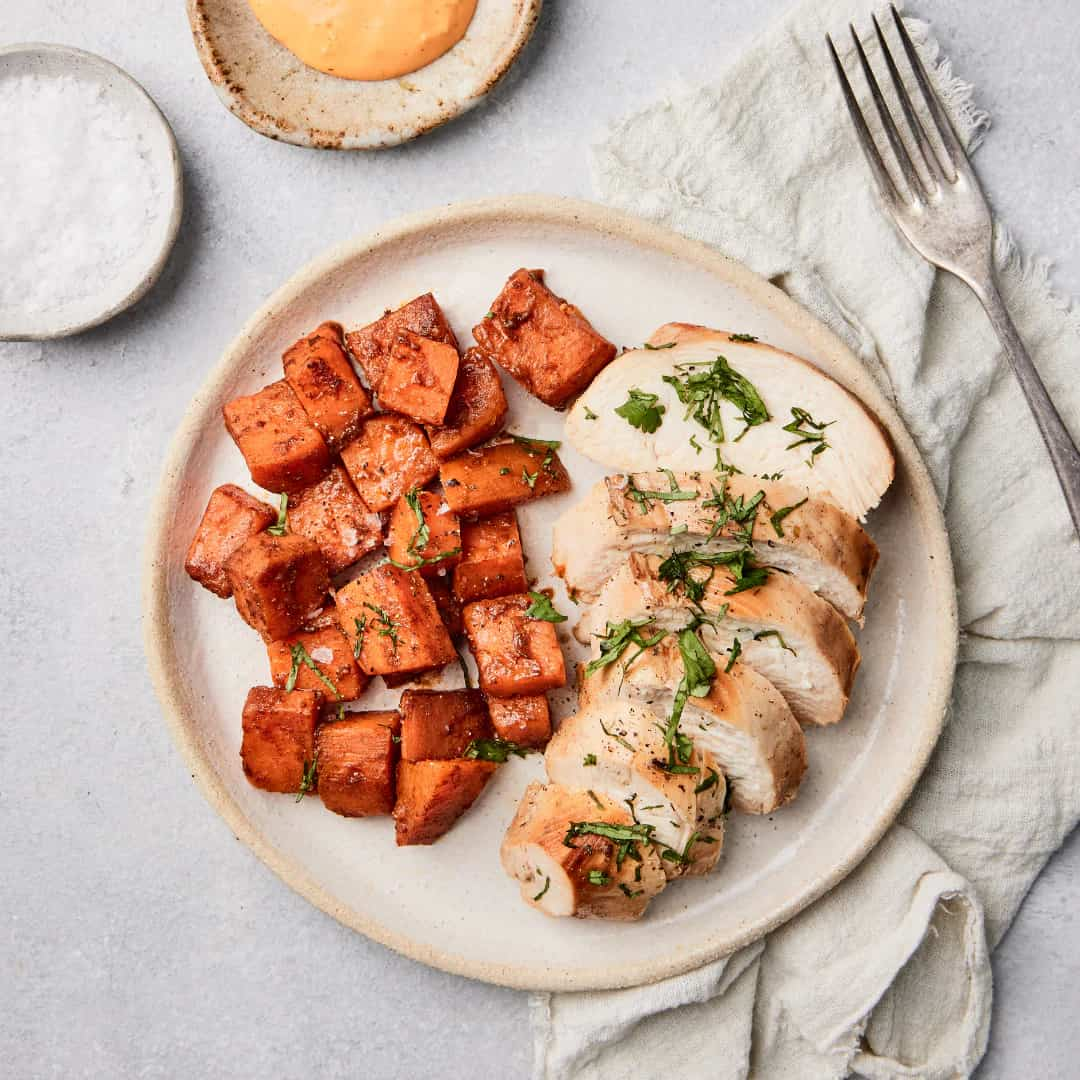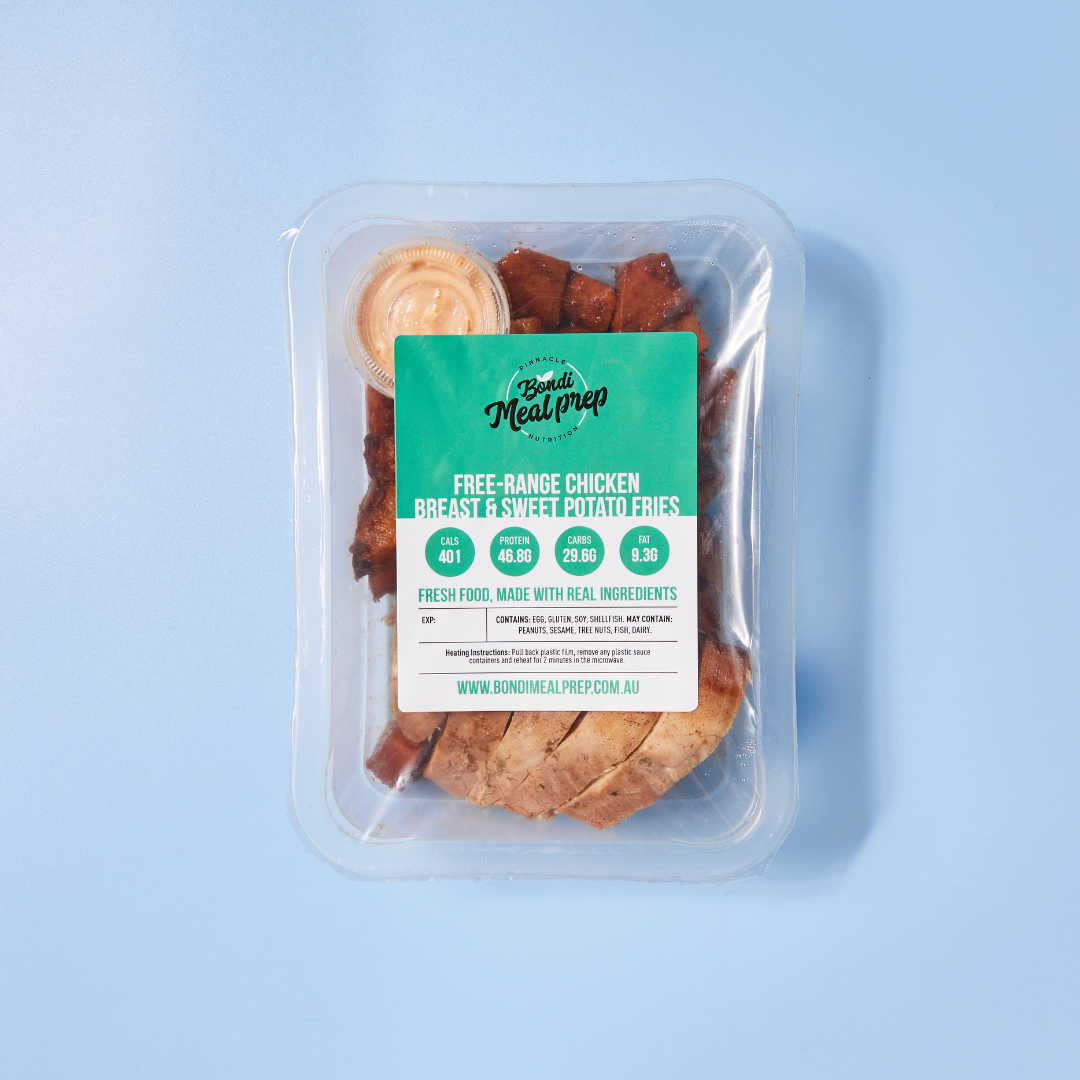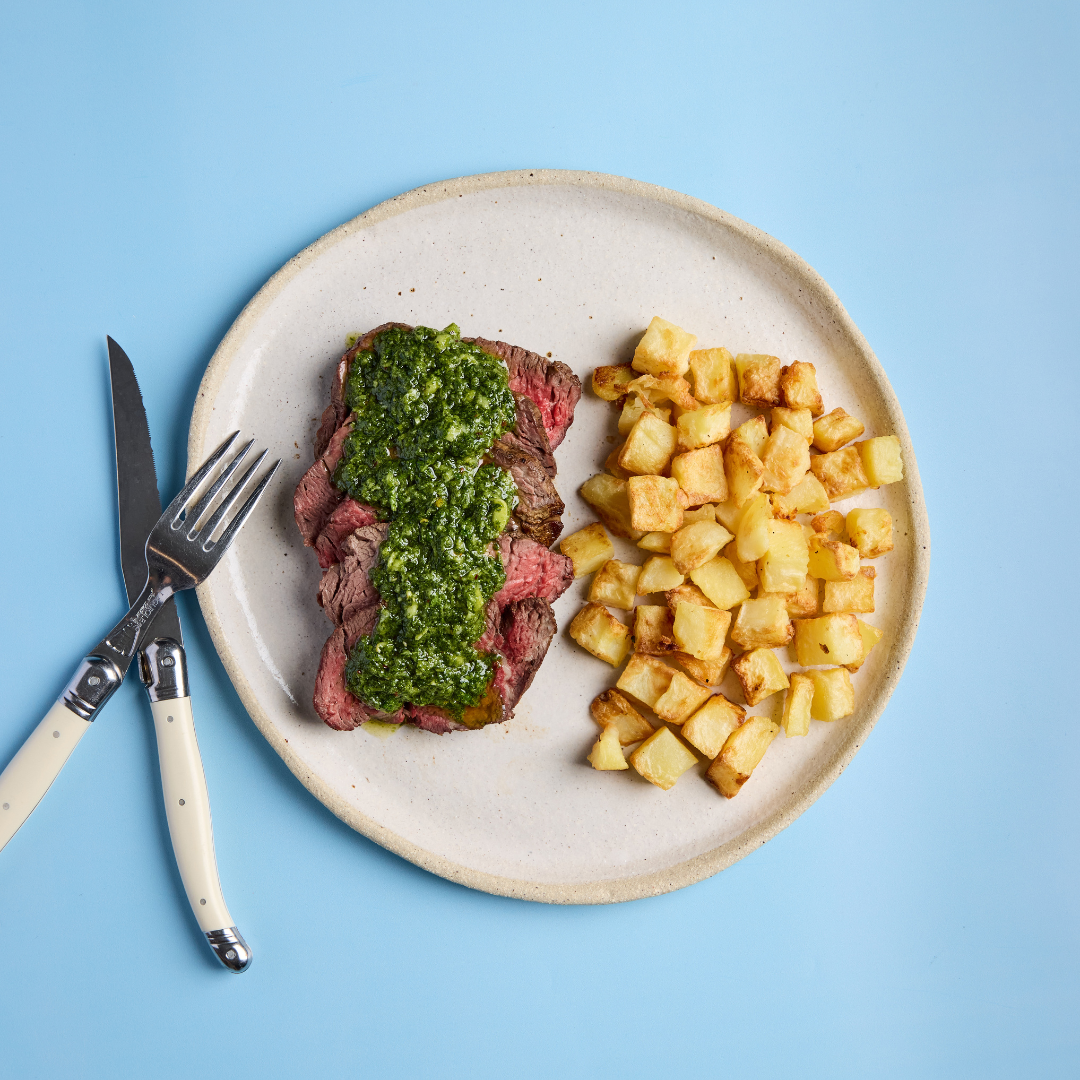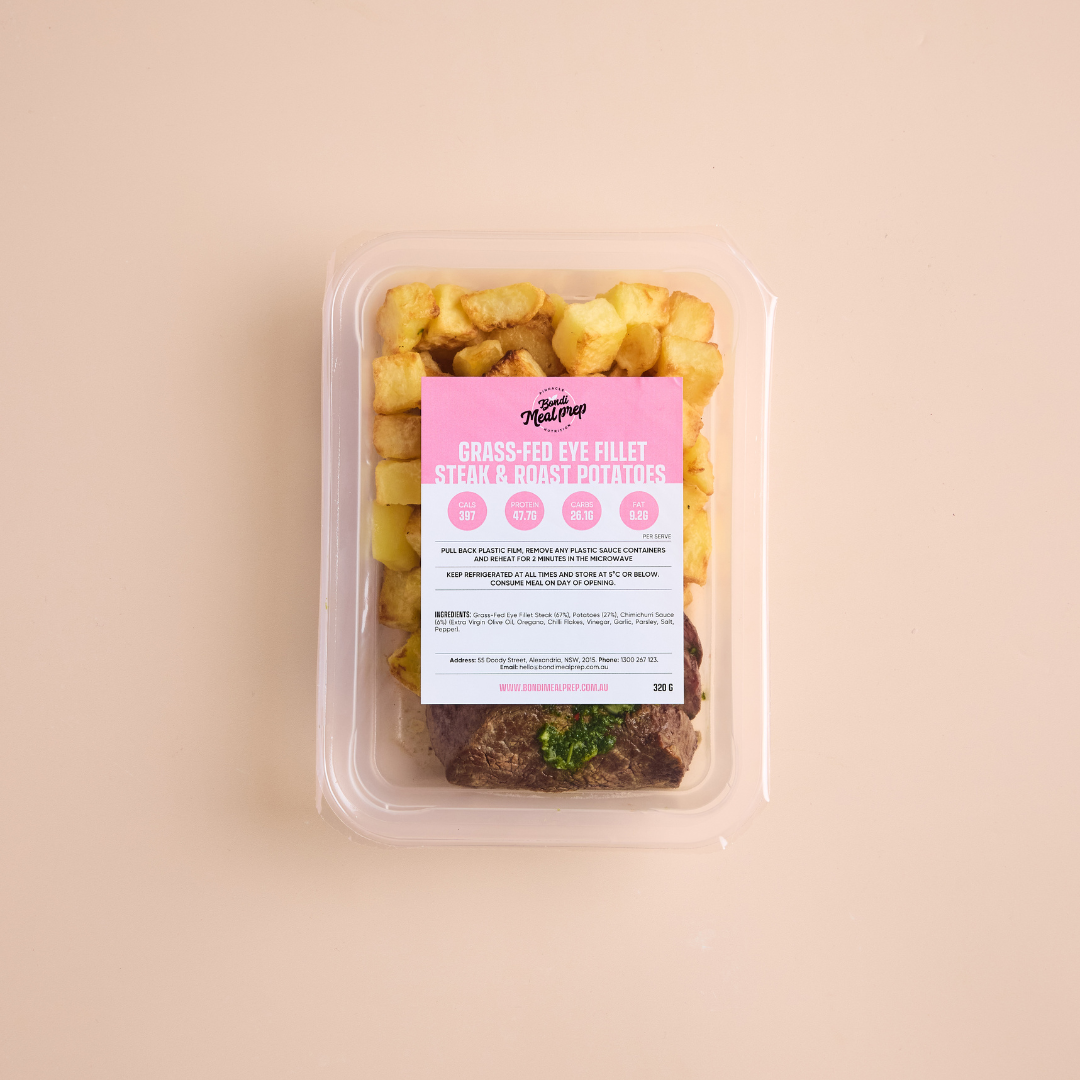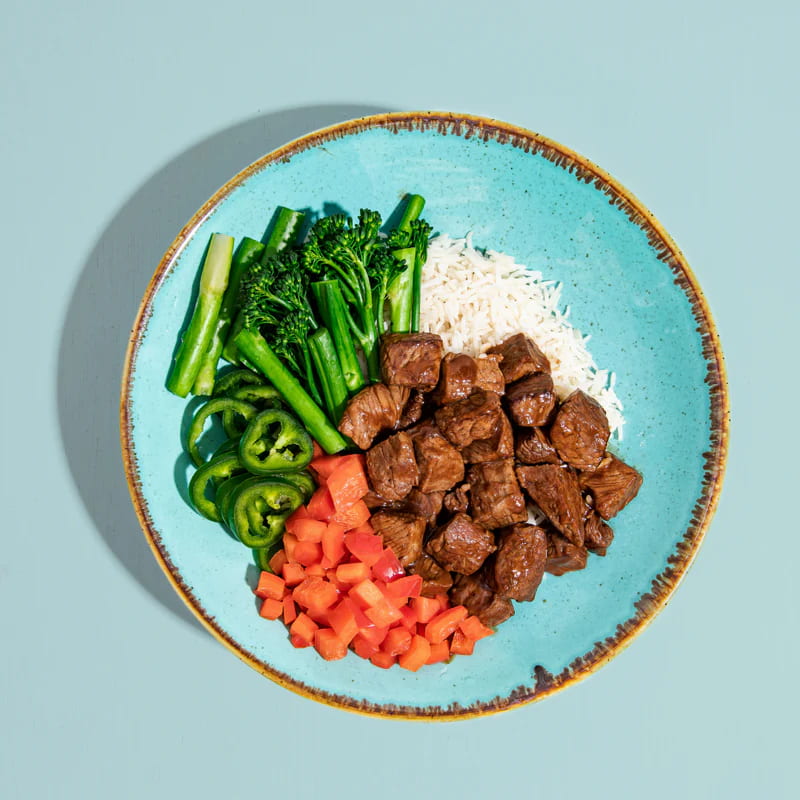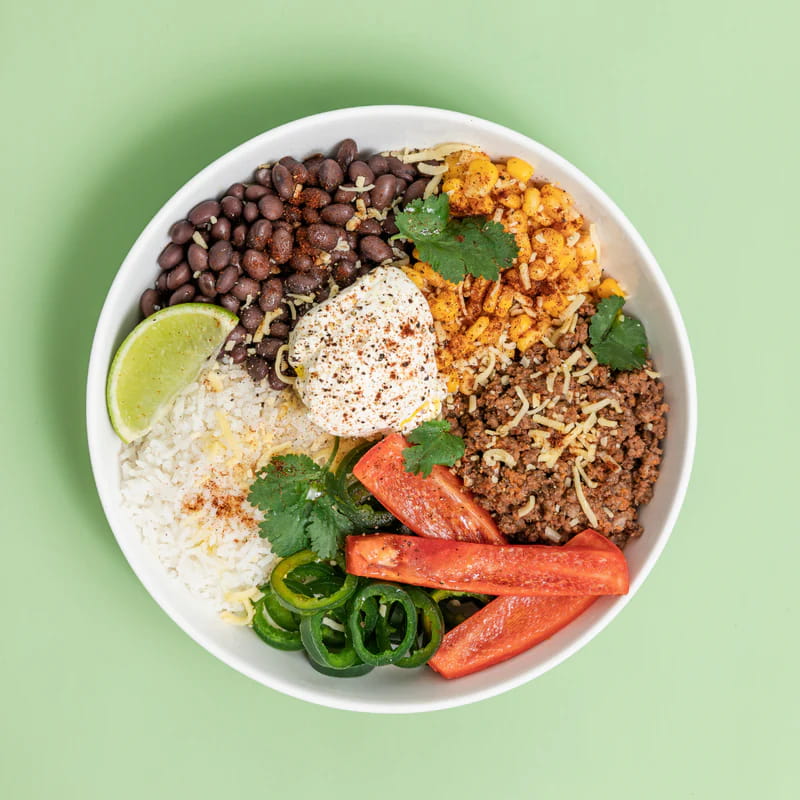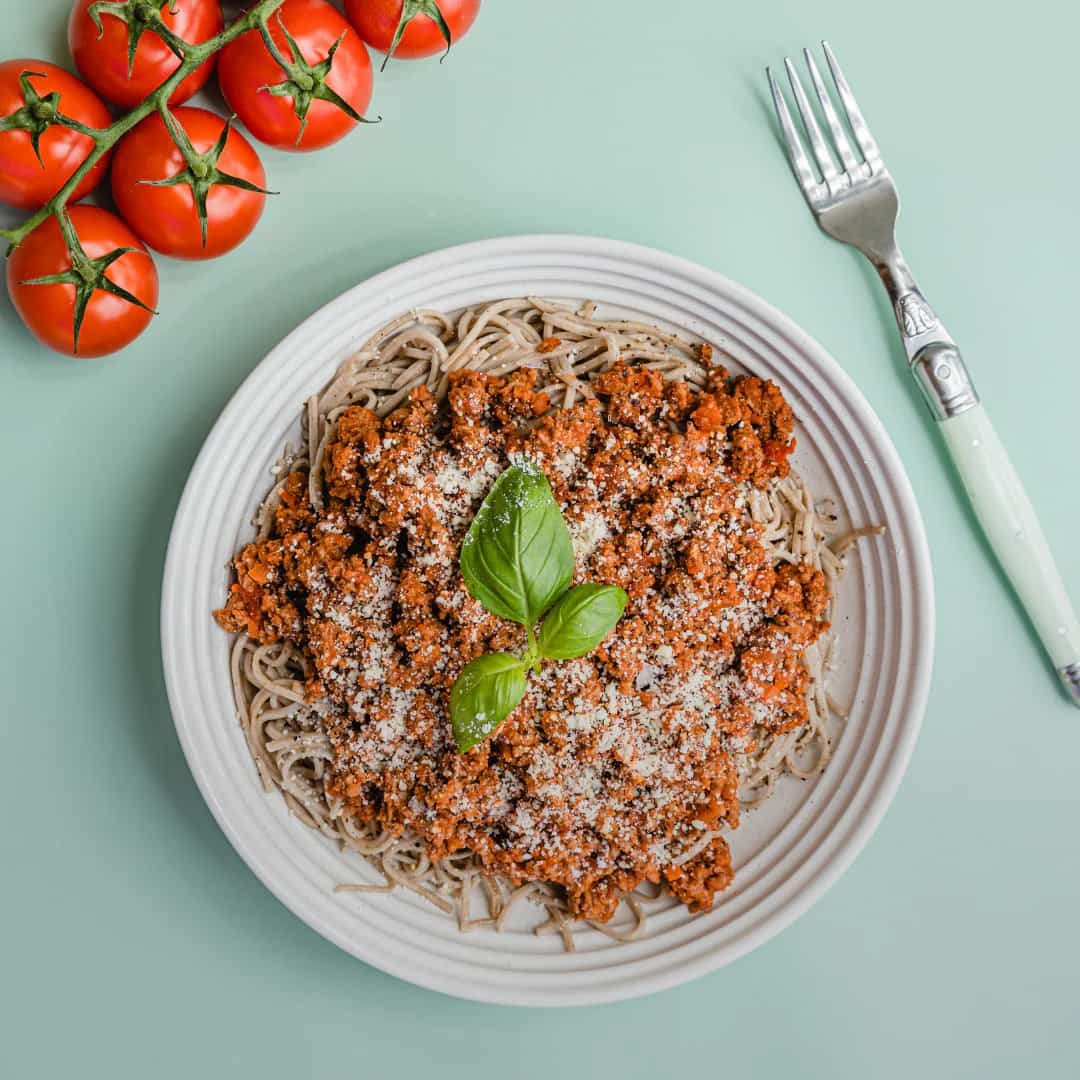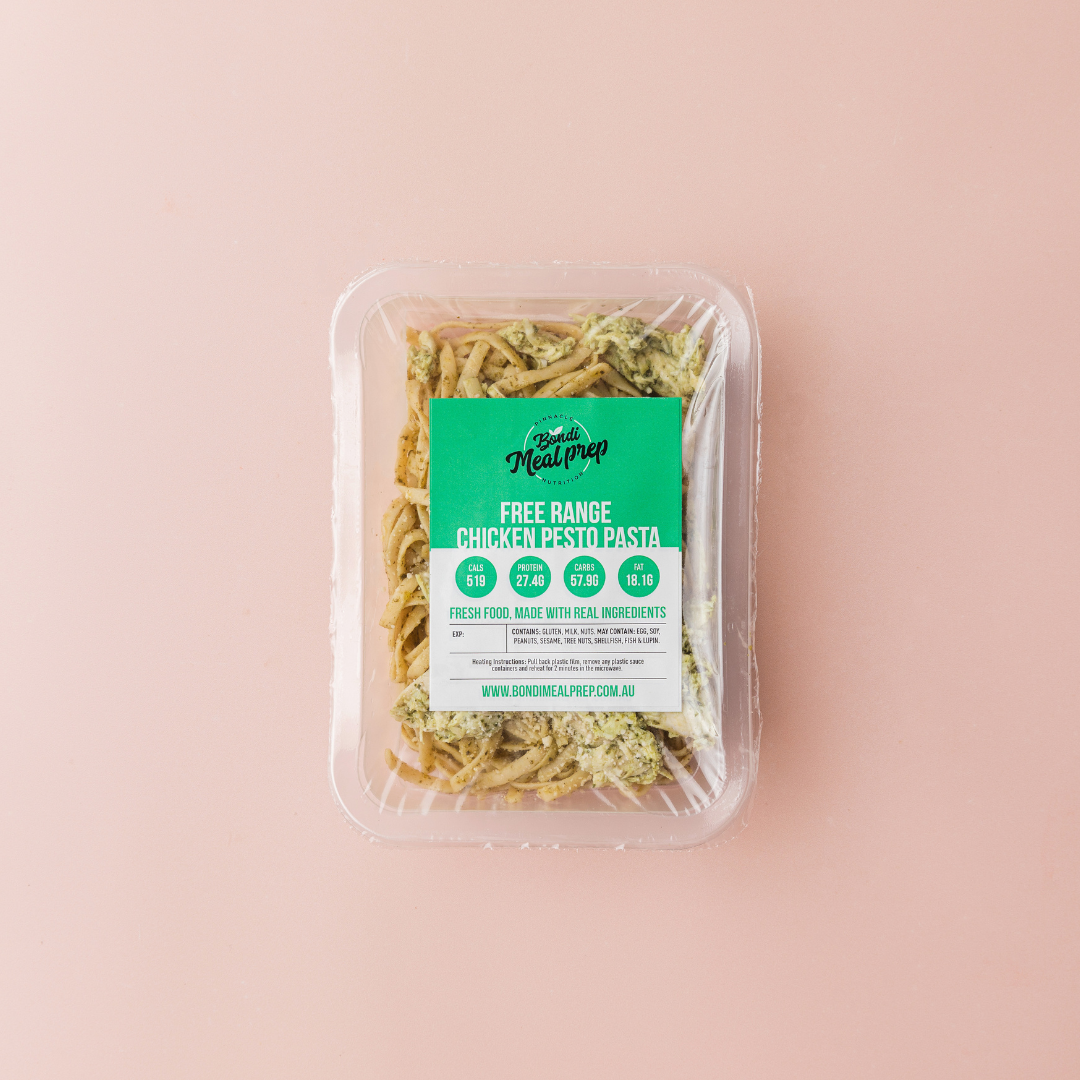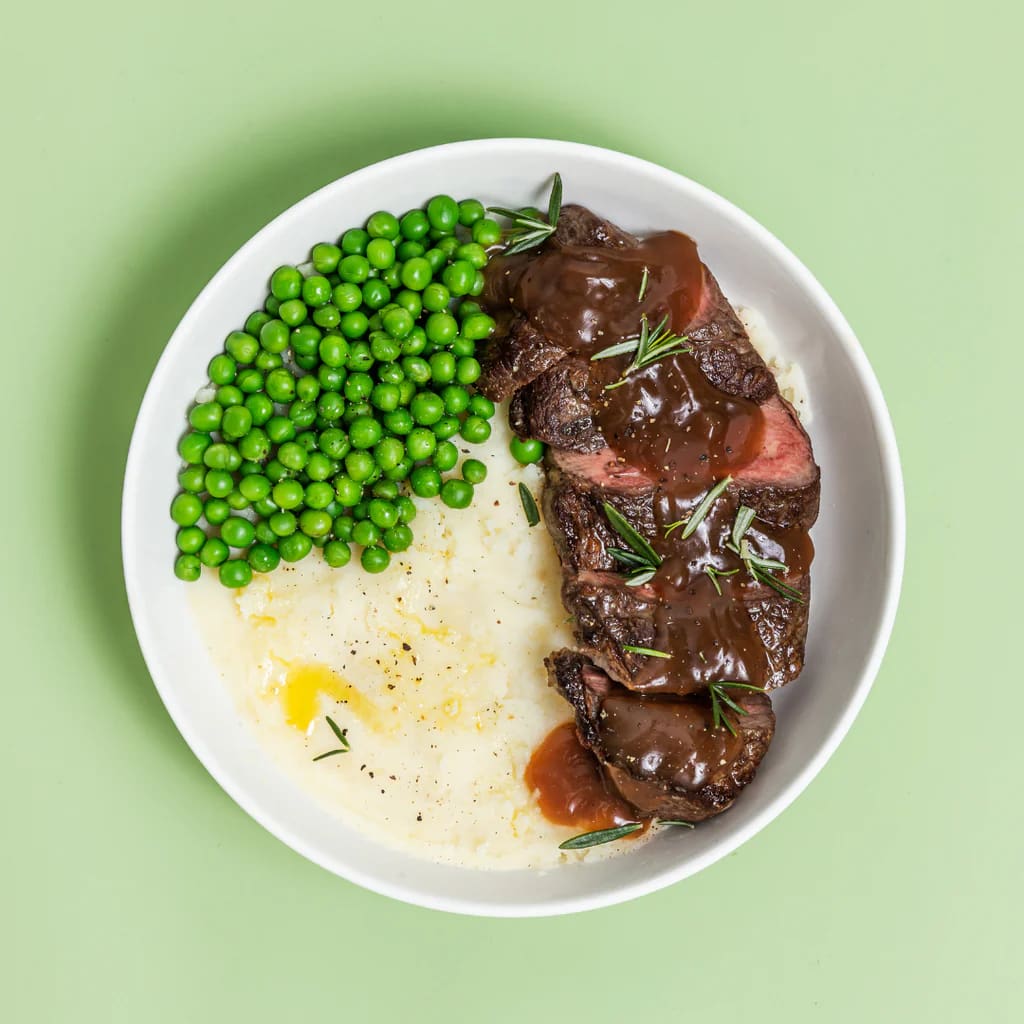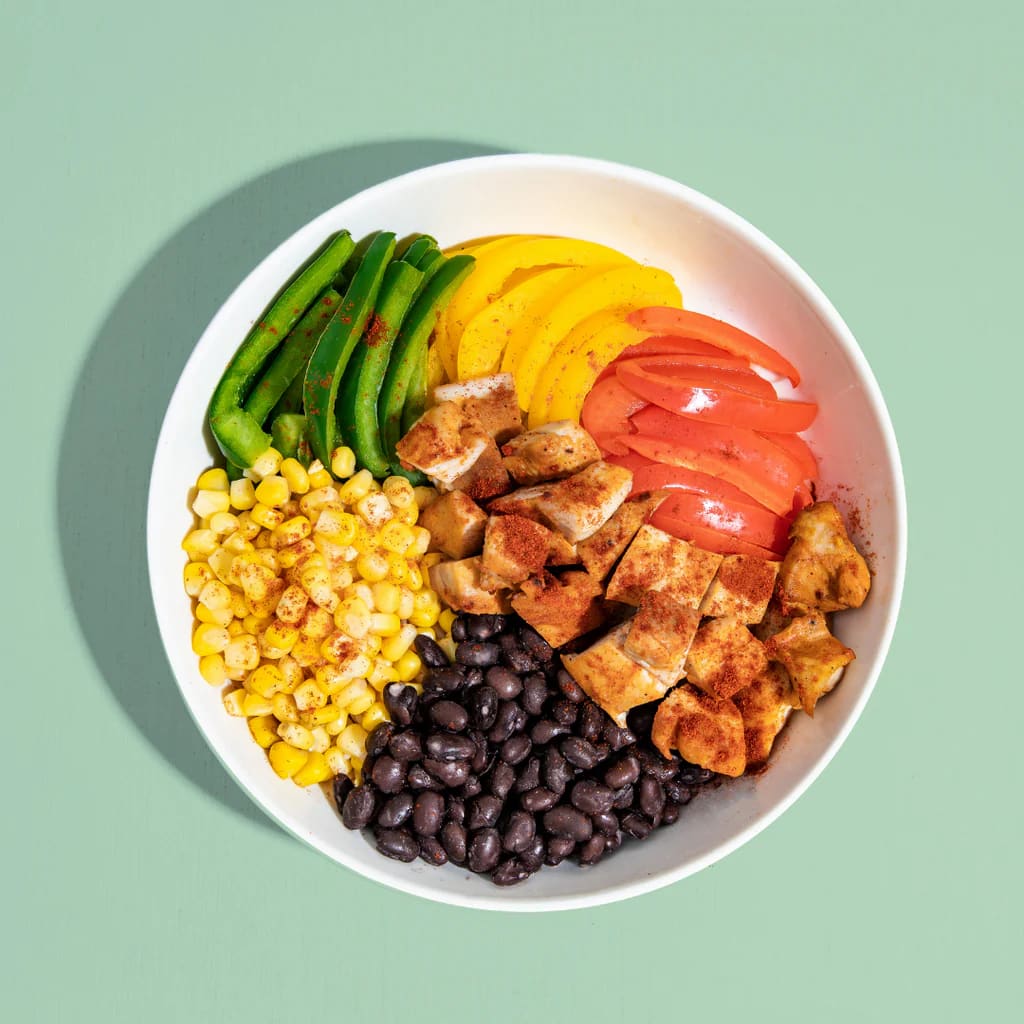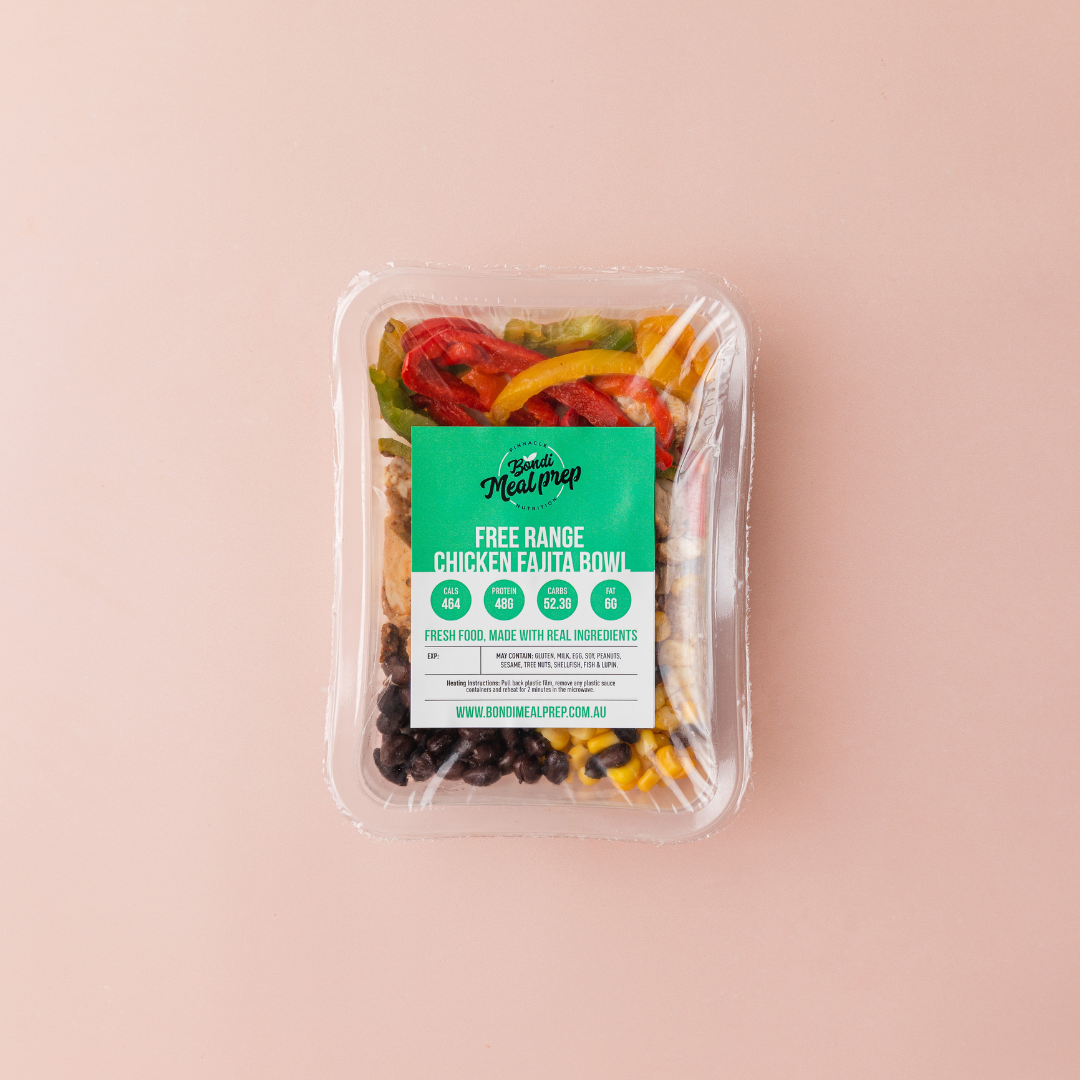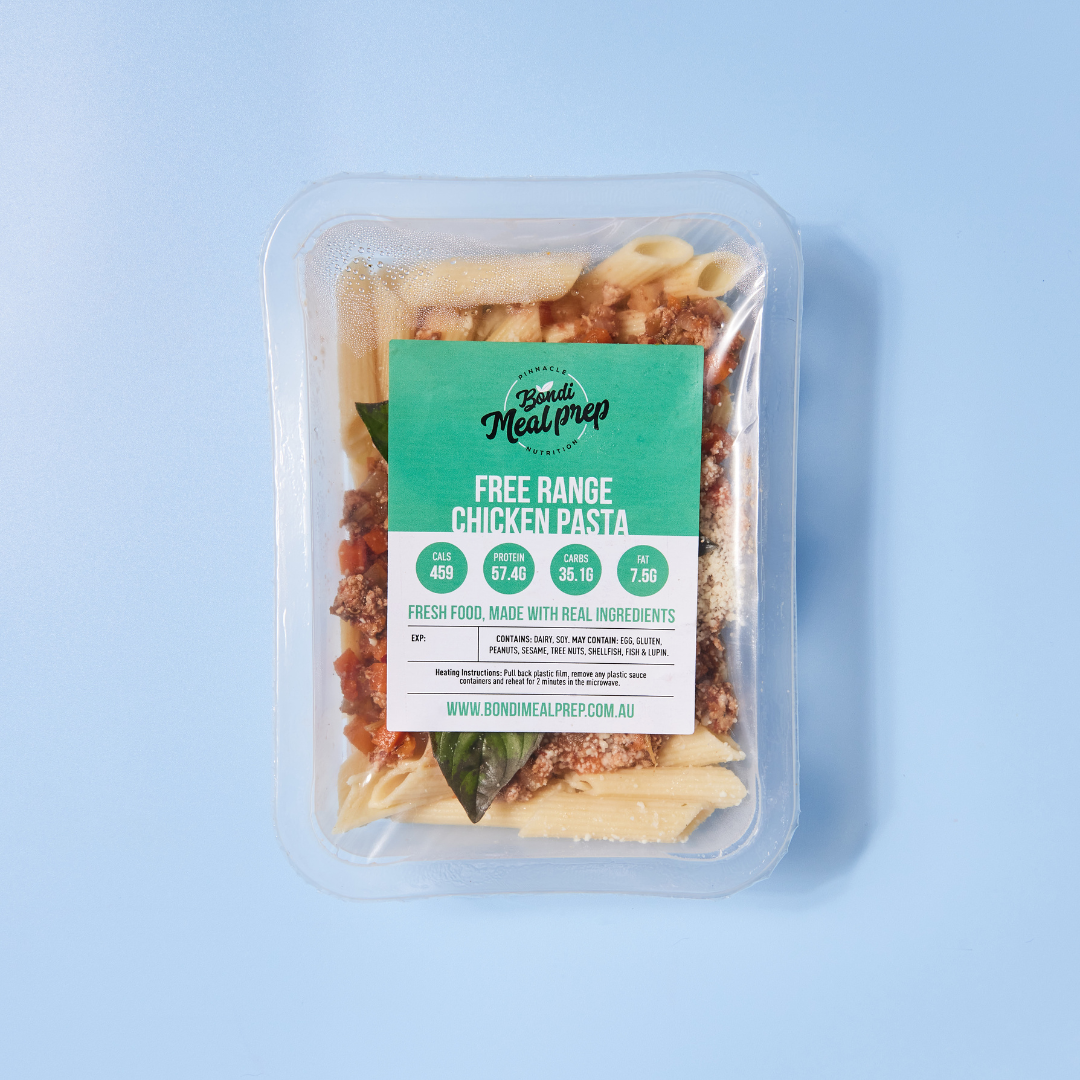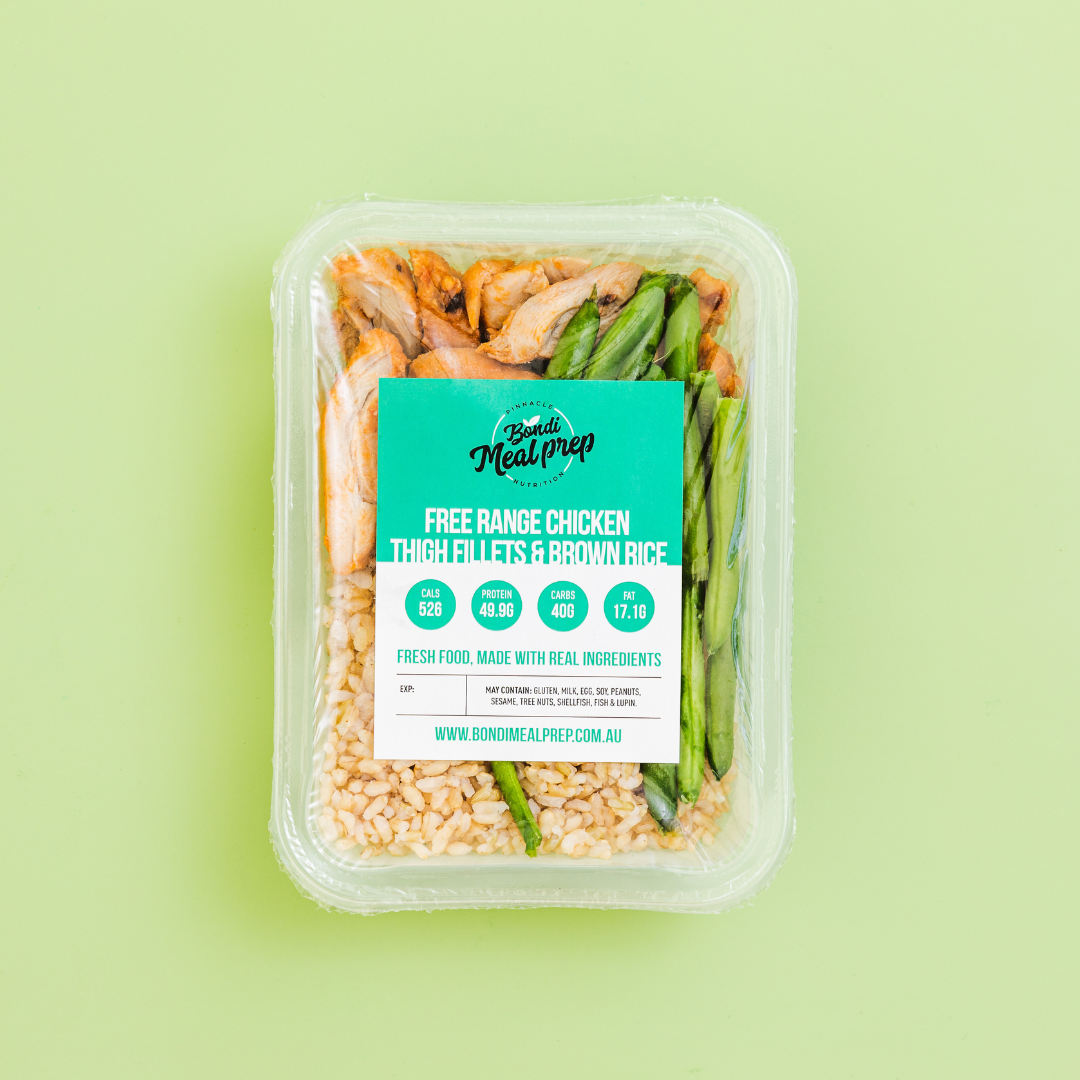With so many diet trends out there, it’s easy to get confused, especially when the two most popular options sound almost the same. The keto diet and low-carb diet both promise weight loss, increased energy, and better blood sugar control, but they achieve these results in very different ways.
For anybody struggling to decide between a keto vs a low-carb diet, this guide breaks down the pros, cons, and key differences between the two. If you want a more effective way to burn fat or simply a more balanced eating plan, we’ll help you decide which of these two diets best suits your lifestyle, body, and goals. Plus, when you’ve picked a winner, start strong on your new diet with Bondi Meal Prep’s keto and low-carb meals.
So, is the best diet for weight loss, keto or low-carb? Let the showdown begin!
What Is the Keto Diet?
The keto diet, short for ketogenic diet, is a high-fat, low-carbohydrate, moderate-protein diet that shifts your body into a metabolic state called ketosis. When your carbohydrate intake drops low enough (usually around 20–50 grams of carbs per day), your body starts producing ketone bodies from fat to use as fuel instead of glucose.
This shift means your body burns fat more efficiently, especially stored fat. As a result, many people experience rapid initial weight loss, reduced hunger, and better blood sugar stability.
But the keto diet isn’t just about cutting carbs. It’s a full shift in how you fuel your body. You’ll focus on high-fat foods like olive oil, nuts, seeds, eggs, avocado, and lean proteins, while avoiding starchy vegetables, grains, sugar, and most fruit.
If you want the full lowdown on the science, check out our Beginner’s Guide to the Keto Diet.
What Is a Low-Carb Diet?
A low-carb diet is less rigid than keto and more focused on cutting carbs without needing to enter ketosis. It typically allows up to 100–150 grams of carbs per day, meaning there’s room for whole grains, legumes, fruits, and non-starchy vegetables, depending on your daily intake.
There are many types of low-carbohydrate diets, including the Mediterranean diet, Atkins, and paleo. Some are higher in protein while others are higher in healthy fats, but all aim to reduce your reliance on carbs and refined sugars.
Low-carb plans work by reducing blood sugar spikes and insulin levels, which can support weight management and heart health. They offer greater food variety, which makes them easier to follow socially, but may not deliver the same immediate fat-burning results as keto.
Keto vs. Low-Carb: What’s the Main Difference?
While the keto and low-carb diets share similarities, there are key differences that set them apart. Technically, the keto diet is a specific type of low-carb diet, but not all low-carb diets are keto.
The main difference lies in how many carbs you eat and what your body does with them. The keto diet is much stricter, designed to push your body into ketosis. A low-carb diet, on the other hand, simply reduces your carb intake without necessarily triggering ketosis. It’s more flexible and doesn’t require a full metabolic shift.
Here's a simple snapshot of the key differences between these two diets:
Keto:
-
Carb limit: Usually under 50 grams per day
-
Focus: Entering ketosis
-
Macros: High fat, moderate protein, very low carbs
Low Carb:
-
Carb limit: 50–150 grams per day
-
Focus: Reducing carbs and insulin spikes
-
Macros: Flexible mix of protein, fat, and carbs
Which Diet Helps You Lose Weight Faster?
Both the keto and low-carb diets can be effective for weight loss, especially when combined with a calorie-controlled eating plan. However, the keto diet often leads to quicker results in the first few weeks, mainly due to reduced water retention as your body burns through its stored carbs.
People following a keto diet often report:
-
Faster fat loss, particularly around the abdomen
-
Fewer cravings thanks to more stable blood sugar
-
Naturally reduced appetite due to the effects of ketosis
Low-carb diets can also support steady weight loss, especially when you cut out sugary drinks, refined grains, and ultra-processed snacks. However, unless you reduce your carb intake significantly, you might not experience the same metabolic shift or improvements in body composition that come with full ketosis.
How Full Will You Feel?
On keto, high-fat foods and protein-rich foods help keep you fuller for longer. Many people report eating fewer total calories without trying, simply because they feel more satisfied.
Low-carb diets vary more. If your version of low carb includes lots of fibre and lean protein, you’ll likely feel satisfied. But if it’s carb-light but nutrient-poor, hunger might sneak in, especially if your saturated fat and protein intake are too low.
This is an area where the keto diet has a definite edge. It offers more satiety, fewer cravings, and less need to snack.
Nutrient Density and Long-Term Health
Both keto and low-carb diets can be highly nutritious when done right, but each requires thoughtful planning to avoid common pitfalls.
Keto considerations:
-
May limit whole grains, fruit, and other high-fibre foods
-
Can lead to low fibre intake or nutrient gaps if not balanced
-
May not suit people with kidney conditions (consult your doctor if this applies)
-
Requires careful fat choices to limit saturated fat and prioritise healthy fats like olive oil and avocado
Low-carb considerations:
-
Allows more variety in carbohydrate sources, but still requires limits for noticeable weight loss
-
Easier to maintain long-term, but less likely to trigger ketosis or metabolic shifts
-
May lack structure, making it easier to slip back into old eating habits
No matter which diet you follow, build your meals around whole ingredients, lean proteins, healthy fats, and fibre-rich vegetables to meet your nutritional needs. For inspiration, check out our 7-Day Keto Meal Plan and 7-Day Low-Carb Meal Plan.
Is Keto or Low-Carb Easier to Stick To?
That depends on your preferences. The keto diet may feel too restrictive if you enjoy fruit, pasta dishes, or the occasional sandwich. The transition can also trigger keto flu symptoms like fatigue and brain fog, and social eating may become more challenging.
A low-carb diet offers more flexibility and is often easier to sustain long-term. You can enjoy a wider range of food groups, eat out with less stress, and adjust your carbohydrate intake based on your needs.
However, some people find the structure and clear rules of keto easier to stick to than the constant moderation required with low-carb diets. It comes down to your lifestyle, eating habits, and what helps you stay consistent.
Pros and Cons Snapshot
Every diet has its strengths and challenges, so let’s compare the pros and cons of keto vs. low-carb to help you decide which approach might work best for you.
Keto Diet
✅ Fast fat loss and hunger control
✅ Boosts energy and mental clarity
✅ Helps stabilise blood sugar
❌ Can be restrictive
❌ Requires macro tracking and commitment
Low Carb Diet
✅ More flexible and socially easy
✅ Easier to include fibre and whole grains
✅ Still supports weight loss and heart health
❌ Weight loss may be slower
❌ Cravings may still occur if carbohydrate intake is too high
So, Which Diet Should You Choose?
If you’re looking for fast results, reduced cravings, and a fat-burning focus, the keto diet could be your winner. It’s ideal for those who enjoy structure, love healthy fats, and want to feel satisfied while they lose weight.
But if you’re after more flexibility, a low-carb diet is a solid option. It allows you to enjoy a broader range of foods but still supports your weight loss goals. If you're focused on balance rather than rapid transformation, it could be the perfect choice.
Ultimately, both of these diets can work wonders when done well. Choose the one you’re most likely to stick to and that fits your taste buds, mindset, and lifestyle.
For Keto & Low-Carb, Bondi Meal Prep Always Delivers
No matter which diet you choose, Bondi Meal Prep makes it simple to stay on track. Our ready-made meals are packed with lean protein, healthy fats, and mouth-watering flavour, perfect for keto and low-carb lifestyles.
Explore our Keto Collection and Low-Carb Collection for delicious macro-balanced meals delivered fresh to your door. Get ready to heat, eat, and hit your goals!


